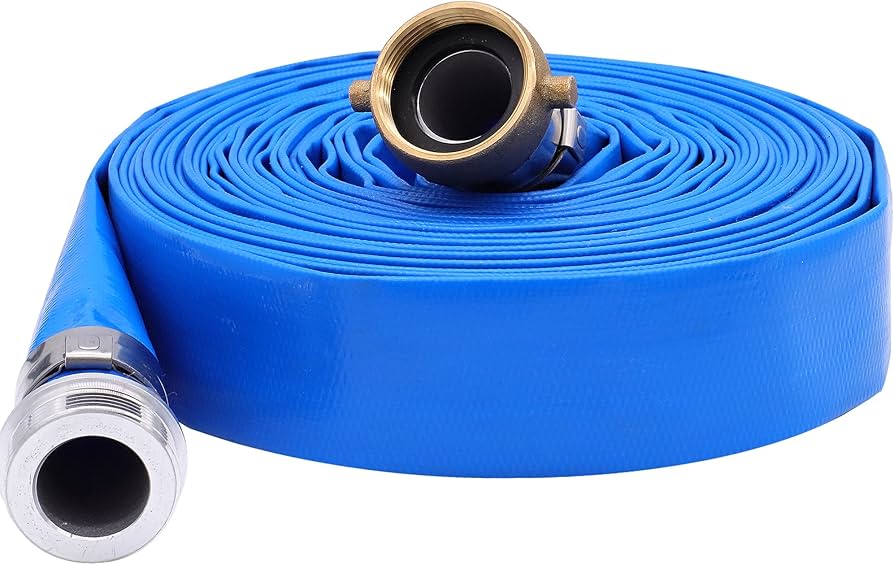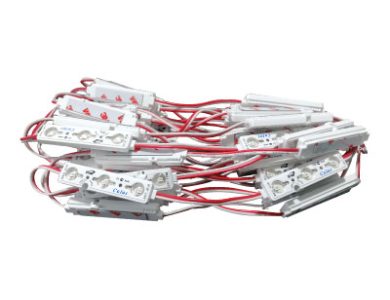Agriculture requires efficient water management, and selecting the right water discharge hose can make all the difference in ensuring crops receive the right amount of water when they need it most. From irrigating fields to managing drainage and distributing fertilizers, the correct hose can enhance productivity, reduce downtime, and minimize water waste. Here’s a guide to choosing the ideal Water Discharge Hose for agricultural applications to help you achieve efficient water use and keep your operations running smoothly.
Understanding Water Discharge Hoses in Agriculture
Water discharge hoses are essential in agriculture for several reasons. These hoses are commonly used to deliver water from pumps to fields, manage irrigation, distribute nutrients, and remove excess water or waste from fields. With various options available, understanding your specific agricultural needs will help you choose a hose that meets the demands of your farm while withstanding harsh conditions.
Key Factors to Consider When Choosing a Water Discharge Hose
1. Material and Durability
The choice of material is crucial when it comes to agricultural applications, as hoses are often exposed to extreme weather, chemicals, and rugged terrain.
- PVC (Polyvinyl Chloride): Lightweight and affordable, PVC hoses are suitable for many agricultural applications. They are resistant to most chemicals, making them ideal for water and fertilizer distribution. However, they may not withstand heavy-duty use or high-pressure conditions as well as other materials.
- Rubber: Rubber hoses are known for their durability and flexibility, even under extreme temperatures. They are ideal for more challenging environments, such as farms with rough terrain or high-pressure systems. Rubber hoses are generally more resistant to abrasion and can handle repeated use.
- Polyurethane: Polyurethane hoses combine the flexibility of PVC and the durability of rubber. These hoses are well-suited to high-abrasion conditions and can withstand heavy machinery movement. They are lightweight and long-lasting, making them a great option for large farms with demanding applications.
2. Pressure Rating and Flow Rate
The pressure rating of a hose is essential, especially if you are using high-pressure water pumps or distributing large amounts of water over extensive distances.
- Low-Pressure Hoses: Suitable for light irrigation and water transfer applications, these hoses work well for drip irrigation or light water distribution.
- Medium-Pressure Hoses: Commonly used in general agricultural tasks, including moderate irrigation and drainage, medium-pressure hoses provide flexibility for farms with varying needs.
- High-Pressure Hoses: Ideal for high-demand agricultural operations, such as large-scale irrigation systems, and for handling high-pressure pumps that move water quickly and efficiently over long distances.
It’s essential to choose a hose with a pressure rating that matches or exceeds the requirements of your system to prevent potential failures.
3. Hose Diameter and Length
Both diameter and length impact the water flow rate, coverage area, and ease of use:
- Diameter: Larger-diameter hoses deliver more water at a faster rate, which is beneficial for large fields that require substantial water. Common diameters for agricultural hoses range from 2 to 6 inches, depending on the volume of water needed and the size of the field.
- Length: The length of your hose should be sufficient to cover the required distance from the water source to the furthest point of the field. Consider the layout of your farm and the specific areas where the hose will be used. Note that longer hoses can create more resistance, which may impact water pressure.
Selecting the right diameter and length helps ensure effective water coverage and efficient water use for crops.
4. Flexibility and Handling
Agricultural water hoses need to be flexible for easy maneuverability around fields, crops, and machinery. Hoses with higher flexibility are easier to manage, particularly in areas with challenging layouts.
- PVC Hoses: PVC is known for its flexibility and is a lightweight option that can be easily moved across fields and around equipment.
- Polyurethane Hoses: These are highly flexible yet durable, making them ideal for areas where the hose may need to be repeatedly moved or adjusted.
- Rubber Hoses: While heavier, rubber hoses offer both durability and flexibility, making them manageable for larger farms that need a hose to withstand heavy use and rough handling.
Opting for a hose with good flexibility enhances the ease of water distribution and reduces the risk of damage from frequent movement.
5. Weather and Chemical Resistance
Given the outdoor environment of agriculture, weather and chemical resistance are vital qualities to look for in a water discharge hose:
- UV Resistance: Hoses exposed to direct sunlight for extended periods need to have UV resistance to avoid degradation. This is especially important for hot, sunny climates.
- Chemical Resistance: Fertilizers and other chemicals used in agriculture can be corrosive. Selecting a hose with chemical-resistant properties ensures it will withstand frequent exposure to these substances without deteriorating.
- Temperature Resistance: Hoses used in colder climates should be resistant to low temperatures to prevent cracking, while hoses in hot areas need to withstand heat without becoming brittle.
Weather and chemical-resistant hoses last longer and perform better under demanding agricultural conditions.
Common Applications and Best Hose Types for Agriculture
1. Irrigation Systems
Irrigation systems require flexible, durable hoses that can withstand continuous water flow and frequent adjustments.
- Recommended Hose: Medium-pressure PVC or polyurethane hoses work well for irrigation systems, offering flexibility and chemical resistance for transporting water and fertilizers to crops.
2. Crop Irrigation and Nutrient Distribution
For distributing nutrients or chemicals alongside water, a chemical-resistant hose is essential. Ensure the hose can handle both the water and any added agricultural chemicals without wear.
- Recommended Hose: PVC hoses with chemical-resistant properties are often used for nutrient distribution, providing a balance of flexibility, chemical resistance, and cost-effectiveness.
3. Drainage and Flood Management
Managing excess water requires hoses that can handle large volumes and moderate to high pressure, especially in flood-prone areas or after heavy rains.
- Recommended Hose: For effective water discharge, a high-pressure rubber or polyurethane hose works best. These hoses can handle high volumes of water, are resistant to abrasions, and offer long-term durability.
4. Wastewater Disposal
Agricultural operations may generate wastewater that needs to be disposed of properly. Hoses used for this purpose must be resistant to chemicals and able to withstand moderate to high pressure.
- Recommended Hose: Rubber hoses with chemical and abrasion resistance are best for wastewater disposal, offering strength and durability in demanding conditions.
5. Heavy Machinery Applications
In farms where hoses are frequently moved or run over by machinery, abrasion resistance and flexibility are essential to prevent wear and tear.
- Recommended Hose: Polyurethane hoses are a good choice here, as they can endure rough handling and withstand contact with heavy equipment.
Tips for Extending the Life of Your Water Discharge Hose
Proper maintenance and handling can significantly extend the life of your water discharge hose:
- Store Properly: After use, coil the hose and store it in a shaded, dry area. Avoid kinks or sharp bends that could weaken the hose material over time.
- Inspect Regularly: Check for any signs of wear, cracks, or leaks. Identifying damage early helps avoid costly replacements.
- Flush After Use: If you’re using the hose for chemical or nutrient applications, flush it with clean water after each use to prevent residue buildup.
- Use Compatible Fittings: Ensure that all fittings and connectors match the hose material and diameter to reduce strain and prevent leaks.
Conclusion
The right water discharge hose is a vital tool in agricultural operations, supporting efficient irrigation, nutrient distribution, and wastewater management. By choosing a hose that fits your farm’s specific needs in terms of material, pressure rating, length. And resistance to weather and chemicals, you’ll ensure optimal performance and longevity. Proper selection and maintenance of your water discharge hose lead to better productivit. Reduce downtime, and help manage water resources effectively for a successful agricultural operation.




